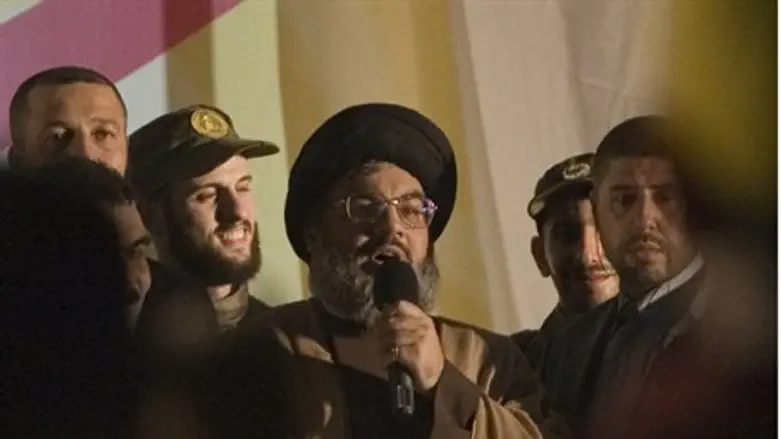
Cypriot Foreign Minister Gujarat Cossack-Marcolis, who presently holds the EU's rotating presidency, said "there is no consensus on the issue, because Hizbullah also has an active political arm."
She added that the matter is open for reconsideration if "tangible evidence" that Hizbullah is involved in terrorist activity can be brought.
Foreign Minister Avigdor Lieberman had requested the EU classify Hizbullah as a terrorist organization after last week's deadly bus bombing in Bulgaria that killed five Israelis and wounded scores more.
"It's time to declare Hizbullah as a terrorist organization," Lieberman told the EU. "It will signal to the Israeli public that the international community stands for what is right."
Prime Minister Binyamin Netanyahu immediately charged Iran and its proxy Hizbullah were behind the attack.
"This has great significance and demonstrates that Iran and Hizbullah are responsible for a wave of terror operations on this continent (Europe)," he said.
This "wave of Iranian terrorism by Hizbullah we are encountering will bring about determined action," Netanyahu warned.
Mossad chief Tamir Pardo and and Shin Bet head Yoram Cohen briefed the cabinet earlier this week, saying they were ramping up intelligence operations against Iran and Hizbullah around the world.
They noted that Iran and Hizbullah had targeted Israelis in more than 20 countries around the world the past two years, though the vast majority of attempts had failed, or been thwarted.
Also this week, IDF chief of staff Benny Gantz told the Knesset Foreign Affairs and Defense c'tee that Israel had thwarted at least fifteen attacks targeting Israelis abroad prior to last week's bombing.
Some observers, given Hizbullah's history, what constitutes "tangible proof" for European officials.
While Hizbullah claims it does not carry out terror attacks, Western and Israeli officials have long blamed Hizbullah for direct involvement in, or orchestrating by proxy:
- The 1982–1983 Tyre headquarters bombings.
- The April 1983 U.S. Embassy bombing.
- The 1983 barracks bombing that killed 241 US marines, 58 French paratroopers and 6 civilians at the US and French barracks in Beirut.
- The Hijacking of TWA Flight 847 in 1985.
- The Lebanon hostage crisis from 1982 to 1992, including the kidnapping and torture-murder of CIA Beirut station chief William Buckley.
- The 1992 Israeli Embassy attack in Buenos Aires, killing 29, in Argentina.
- The 1994 AMIA bombing of a Jewish cultural centre, killing 85, in Argentina.
- The 1996 Khobar Towers bombing, which killed 19 Saudi citizens, and 1 American.
- The 2000 cross-border kidnapping and murder of IDF soldiers Adi Avitan, Benyamin Avraham, and Omar Sawaidwere.
- In 2002, Singapore accused Hizbullah of recruiting Singaporeans in a failed 1990s plot to attack US and Israeli ships in the Singapore Straits.
- The 2005 assassination of Lebanese Prime Minister Rafiq Hariri for which 4 Hizbullah members were indicted by the Hague.
- The 2006 kidnapping and murder of IDF soldiers Ehud Goldwasser and Eldad Regev, which precipitated the 2006 Israel-Lebanon War.
- Indiscriminately targeting Israeli civilians with rocket fire during the ensuing 34 day conflict.
- The January 15, 2008, bombing of a U.S. Embassy vehicle in Beirut.
- In 2009, a Hizbullah plot in Egypt was uncovered, where Egyptian authorities arrested 49 men for planning attacks against Israeli and Egyptian targets in the Sinai Peninsula.
- A failed 2011 bombing in Istanbul targeting the Israeli consul, which left eight dead.
- A spate of bombings targeting Israeli diplomats in India, Georgia, and Thailand in early 2012.